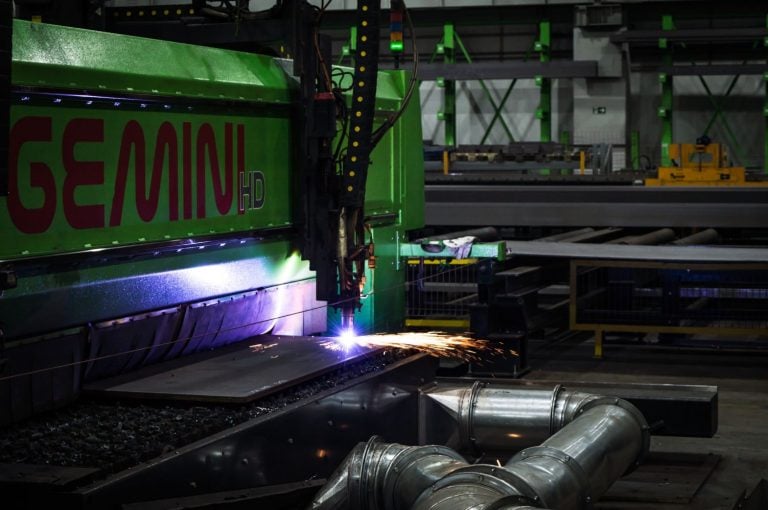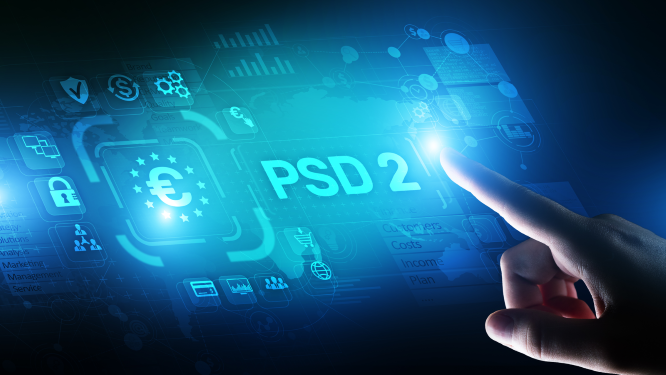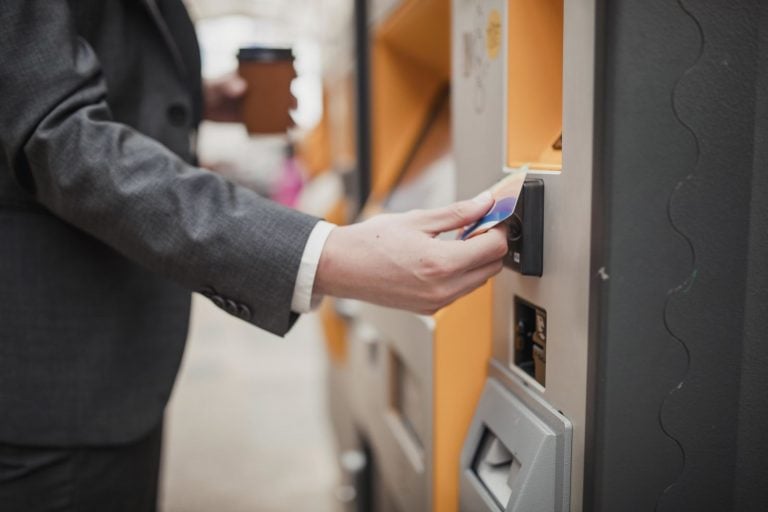Ten trends today that every fintech must recognise
03 December 2019

It’s all about service

As of January 2019, there were over 300 unicorns (start-ups with a valuation of at least $1 billion) globally; and four newcomers have appeared already this year. These include:
Casper: A sleep-related online outlet that produces foam mattresses, bedding and bed frames; disrupting the tired (!) bed sales industry (and spawning many competitors along the way). Innovation: sales and logistics
Rent the Runway: Allows anyone to rent a designer piece through either an individual or monthly membership. Innovation: subscription
Glossier: A makeup and beauty retailer that focuses less on models and more on IRL (in real life) experience. Innovation: cultural relevance
What do they have in common? A focus that truly puts the customer at the heart. From moneyback guarantees to customized experiences designed around the individual. These unicorns all rank high on Sailthru’s Retail Personalization Index.
Money management is for everyone

‘Growth’ is becoming a buzzword as the barriers to every aspect of money management become lower. We are becoming a nation of investors, because it’s something anyone can do, and as we start to own more accounts, new platforms are popping up to help us manage this new complexity.
Investing: Investing for equity is inexpensive via crowdfunding. Thanks to sites like Seedrs, you can hold a stake for just £10. Alternatively, join a managed fund to become a shareholder across multiple businesses for just £100. Businesses have 60 days to secure investment and, if they fail, all investors get their money back. Or there’s PropertyPartner, which has similarly lowered the barriers to entry for investing in property. For classic share trading, Robinhood and Freetrade make dealing almost free in most circumstances. Whatever you want to invest in, the minimum is looking like £10-£100 rather than £1000-£10,000.
Money Management: Crowdfunding is what enabled Money Dashboard, originally started in Edinburgh in 2010, to win UK’s Best Personal Finance App 2017 & 2018 at the British Bank Awards. It’s a free app that combines business and personal accounts to keep everything from expenses to budgets all in one place. Further upstarts are playing in this space – Dozens wants to be advice-led, and yet fill the role of current account provider and basic investment portal.
Blockchain grows up

Blockchain, the technology behind cryptocurrency, is no longer a baby. Its first use in time-stamping a digital document was back in 1993, and since then, the blockchain has started to underpin ventures from logistics to accounting and retail.
Essentially, it’s an easy way to reduce paperwork and administration (everything is updated in real time) while enabling transparency and security. In fact, PwC claims that 77% of Fintechs will adopt blockchain by 2020.
According to Elias Haase, Co-founder and Community Manager of B9lab, the world’s leading provider of blockchain education and training, “The next ten years will bring blockchain into mainstream organizations as a cost-saving measure that can help with compliance.”
Note that we haven’t mentioned cryptocurrencies: the value of blockchain to fintech will be in removing complexity, driving automation, cutting the cost of service, and shortening compliance cycles.
Banishing manual repetition, making life super-easy for customer

The plague of human error is about to become that bit closer to eradication as Robotic Process Automation (RPA) automates processes which previously required human labour.
This especially applies to repetitive tasks which, counter-intuitively are more susceptible to errors because they are mind-numbingly boring – like assessing loan applications.
From farming to manufacturing, there is a huge amount of potential for RPA services. The G2 Crowd Learning Hub claims that 75% of financial services corporations will be using RPA software by the end of 2019.
The secret of RPA is that it’s not just for the tech-savvy, automations are designed to match human workflows and are therefore simple to understand. In the past two years alone, market leader UiPath has grown its annual recurring revenue (ARR) from $8M to over $200M. It has just announced a partnership with DataRobot, which means that RPA will now also benefit from Artificial Intelligence, making automations even more flexible and malleable to human workflows.
Automations also take out human interventions – making many processes completely digital and therefore fast. That’s exactly what customers want!
Regulation gets its tech spurs

Regulatory Technology (RegTech), is here to speed up our safeguards, reducing the confusion and complexity caused by regulatory changes such as GDPR. Indeed RegTech is the “RPA of compliance”. ClauseMatch, for example, a London-based RegTech firm, has just secured $2.5m venture debt funding through Silicon Valley Bank. Craig Fox, Vice President for the UK branch, says demand for platforms like his is because “companies increasingly look to bring more automation to back-office operations.”
That’s why investments in RegTech are on course to grow by 500% in 2020 to a staggering $53 billion according to G2 Crowd Learning Hub. RegTech provides solutions for financial services in the broad fields of Regulatory Reporting, Risk Management, Identity Management & Control, Compliance, and Transaction Monitoring.
PSD2: Open data, open infrastructure

The banking sector changed dramatically in 2018, thanks to the Second Payment Services Directive (PSD2) as more third-party applications were integrated. It has caused a dramatic spurt in innovation, from updating accounts in real time to further protection of customer data.
In September 2019, the Regulatory Technical Standard for PSD2 will come into force; which means that further security and authentication methodologies will be required for a range of online transactions; together known as Strong Customer Authentication (SCA). This will include opportunities to deploy biometrics such as fingerprint and voice recognition. These facilities will then work together with third-party applications to ensure financial security on the move.
With the ability to create APIs, fintech businesses now find themselves with the ability to build and implement a security infrastructure of the same quality as traditional institutions. The banking monopoly on trust is no more, although a recent PSD2 cut-off date in March (for the creation of safe and isolated API ‘sandbox’ environments) showed that the incumbents themselves were in pretty poor shape: of 442 European banks, 41% actually failed to meet the deadline.
AI: The bank manager you’ll never see

Remember when we were all worried that robots were going to take over? They already have: we just need to use them to our full advantage – and that means using AI to interrogate the data lake.
Bob Lord, Chief Digital Officer at IBM says, “Banks are sitting on mountains of data and they need to leverage it to survive in the future. With so much data available within the industry, we must work together to analyse the data and act on it. Data will be the key to the evolution of the payments.”
AI will not only study your banking habits; it will interrogate multiple data sources to make:
- More accurate decisions from a deeper set of criteria
- Fuzzier decisions based on more qualitative than quantitative criteria
…offering tailor-made packages and suggestions to suit spending patterns. AI will also keep you safe: from fraud detection and anti-money laundering to the way a customer interacts with its bank, AI will learn our habits and flag up discrepancies.
Digital decisioning

Digital decisioning essentially marries up the advanced analytics capacity of AI with the assessment of financial services applications – especially marginal cases which, with the right hit-rate, can represent an exciting new business category. In short: “the computer says yes”.
KPMG calls it Cognitive Automation: never needing to make another decision based on someone’s handshake, instead deploying exceptional depths of customer understanding.
According to one Forrester report, “A key challenge of digital business is deciding what to do in the customer’s moment of need – and then doing it. Digital Decisioning software capitalizes on analytical insights and machine learning models about customers and business operations to automate actions…for individual customers through the right channel.”
The market for such software is expanding, with IBM and TIBCO Systems taking the lion’s share today.
Big screen, little screen, no screen

The days of standing in line at the bank are almost over: CACI predicts that 72% of the UK will bank via a phone app by 2023.
But technology continues to advance.
PwC predicts that by 2020, more than 50 billion devices (“things”) will be connected online, and forecasts that IT revenue will exceed $3 trillion in 2020.
We are becoming increasingly reliant on connected technology, from Alexa to the self-driving car. Recently, major banks have integrated voice recognition, allowing you to make mortgage payments or transfer your money not only easily, but with your ID seamlessly identified by your voice profile.
The question is, where next?
The end of cash?

The cashless society is not a new idea. Transport for London stopped accepting cash on its buses and trains back in 2014, and a plethora of payment methods has evolved in recent years (and it is recent: the ubiquitous mobile-to-card interfaces, for example, only began with Apple Pay in 2014 – just five years ago!)
Yet surprisingly, there is twice as much cash in circulation now than there was a decade ago – around 70 billion pounds according to the Bank of England. Equivalent to £1000 per person, this is mainly carried by shops as floats. The Bank also recently opted not to discontinue the beloved one penny piece (presumably after lobbying from ‘99p stores’).
But the trend is clear. From paying by card to smartwatch and even via Bitcoin-loaded smartwallets, many shops are now choosing to not accept cash. Back in 2017, debit cards overtook cash as the most frequently used payment method in the U.K. There’s a cost to joining the digital payments ecosystem, but many shops are choosing to absorb the transaction fees for the ease of not carrying cash. Swipe technologies such as Venmo continue to grow, and with facial recognition technology we are one step closer to eliminating even the need for phones and smartwatches.
Cash may not be king, but technology is certainly behind its decline.

